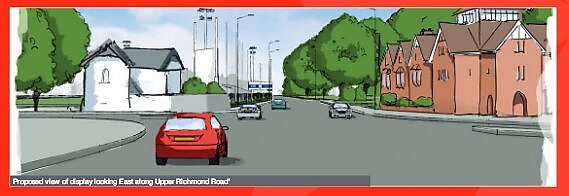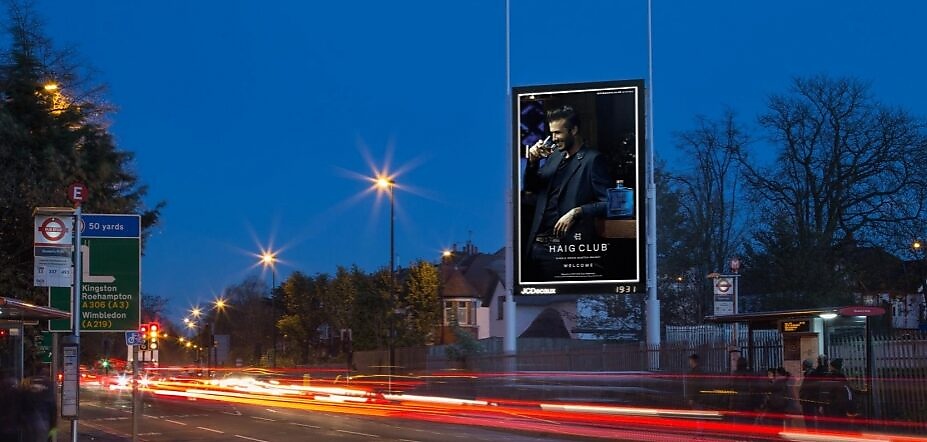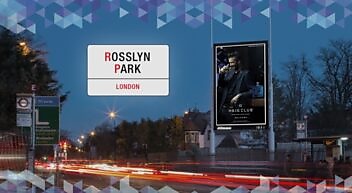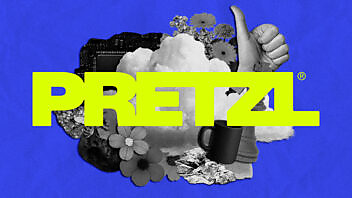I was driving to dinner with my irascible wife and unusual daughters the other night and came across two surprising new additions to our neighbourhood: three enormous, illuminated billboards along the Upper Richmond Road on the grounds of the local rugby club, Rosslyn Park (One of them is pictured above — see it? Just next to the bus stop? See? Yeah, that one.).
What had been a leafy, suburban road is now a visually noisy, urban experience.
What had been, for centuries, a non-commercial way to get from A (Barnes) to B (Putney and beyond) is now a bright, crass marketing channel.
As a marketer, you’d think I might like this development.
I don’t.
I hate it.
Because outdoor advertising is spam.
Look it up. Spam is defined as, “Unwanted messages, delivered with no sense of relevance or context.”
As residents and neighbours, we didn’t ask for these intrusions. We didn’t vote for them. We didn’t even know about them until they appeared.
Most importantly, there is no way to opt out of seeing them.
Rosslyn Park Football Club needed some extra income, so they sold us out.
They sold the eyeballs of their neighbours (some of whom are also fans and customers).
They sold us to JCDecaux, one of the world’s biggest outdoor advertising companies and therefore, one of the world’s biggest spammers.
JCDecaux (they even sold the punctuation in their name – probably as a package deal with their grandmother’s forehead) makes money from advertisers who want, as their website says, “to connect brands with the affluent and upmarket South West London audience.”
Rosslyn Park, who no doubt needs every penny of income (I do sympathize) makes over £170k a year.
And the hundreds of thousands of people who are exposed to their spam get… nothing.
(Unless you find some perverse value in a 30-foot high picture of human-brand David Beckham posing next to a badly-branded bottle of branding.)
The Decaux site goes on about the “historic” and “iconic” site – the very history and iconography that they have just blighted forever – and how it is, “now home to one of JCDecaux’s most premium offerings, with screens supported by rugby-themed structures that mimic goal posts, a truly unmissable sight along Upper Richmond Road.”
“Rugby-themed structures”?!?
“Mimic goal posts”?!?
How very sensitive of JCDecaux.
Don’t ever accuse them of not caring about the environments they exploit.
The Rosslyn Park billboards are rugby-themed in exactly zero ways.
They mimic goal posts in exactly two ways: they are vertical and stuck into the ground.
The one thing they got right was the “truly unmissable” part. There is NO way you could miss these enormous eyesores. One is a back-to-back, digital ’96-sheet’ (37 square metres of fun, times two), the other a portrait-format, one-sided beast that dwarfs the double-decker buses that pass (the passengers of which are not really the target audience).
The actual target, the people driving past these new monstrosities, may be, to JCDecaux, “an upmarket and affluent audience”, but to me, they are the families, friends and neighbours who never opted in to this intrusion.
We live here.
This is our home.
When you inject your advertising into it, you and the brands you advertise, are spamming us in the most boorish way imaginable. Every day.
Billboards are an unethical industry.
I went to the JCDecaux site to harvest some juicy weasle-wording about how they care about the neighbourhoods they deface.
But there is none.
They have a whole section on ‘ethics’ and ‘sustainability’ but they limit the scope of these sections to the usual, ‘corporate social responsibility’ nonsense about being fair to suppliers and using bamboo wherever they can.
Nothing about their responsibility to the communities (sorry, “audiences”) they profit from.
It’s exactly like the tobacco companies, denying the obvious for decades while pointing to the pretty pictures behind the elephant in the room.
Here’s the truth: There is no ethical way to run an outdoor advertising empire (except maybe to limit your sites to airports and stadiums, where people kind of opt in by agreeing to attend a commercially-funded experience).
I didn’t agree to attend to your marketing. I just went outside.
Oh wait. There is one line, buried under a pile of off-the-shelf PR piffle:
“…we ensure that each product is built to the highest quality and in keeping with the local landscape and heritage. ”
And this one line – the only reference on the entire JCDecaux site to the social and environmental impact of their business – is a patent lie.
Look at the photos. The Rosslyn Park billboards are taller than the houses they obscure.
The “local landscape” consists of trees.
Please, JC, explain to me in your best PR voice: In what way is a pair of waste-dump-sized, backlit whisky ads “in keeping with” trees?
In the same way, I imagine, as a loud fart is “in keeping with” Barber’s Adagio for Strings.
Or a Donald Trump hotel is “in keeping with” Buckingham Palace (actually, these two probably are of similar ethical and aesthetic lineage but don’t get me started).
Compare these two photos
One is the sketch that the spammers used to sell the ‘discrete’ billboards to the local planners and community:

You can hardly see the billboard in this picture. It’s that tiny white thing behind the trees.
The other is the picture they show potential advertisers, bragging about prominence, impact and ‘unmissability’:

What happened? The tiny white thing is now a giant illuminated ad dwarfing all.
That’s how unethical commerce works: showing one face to planners and communities while showing the opposite to advertisers keen to profit from those communities.
Billboards are the opposite of content marketing
One reason I hate outdoor advertising so much is that it’s the exact opposite of content marketing:
- Instead of offering value, it grabs value and gives nothing back to the audience.
- Instead of earning attention the hard way, it tries to buy it.
- Instead of asking people to engage, it interrupts their lives and shouts in their faces.
Why the hell would you buy any brand that did that?
Beyond NIMBYism
Yes, the Rosslyn Park billboards are in my back yard.
And yes, I’d like them to be taken down (I just discovered a campaign to try to make that happen — do sign the petition if you agree).
But the issue is much bigger than one site spoiled by one set of billboards.
This is about whether any property owner should have the right to sell our visual environment for profit. If that’s okay, sit back and enjoy. If not, maybe there are things we can do about it.
It’s not impossible:
- Sao Paolo, a city of 11 million people, banned outdoor advertising in 2006 and it made a dramatic impact on the lives of all residents. (It’s creeping back now, with JCDecaux-backed clocks. Bastards.)
- Vermont banned billboards in 1968. Because Vermont is too pretty for 90-foot-high product shots. Maine, Hawaii and Alaska are also billboard-free.
- Now, as the Guardian reports in a great article, “Can Cities Kick Ads?”, serious movements have started in Tehran, Paris and New York to ban outdoor advertising. Grenoble, France was the first city in Europe to ban billboards.
What we can do about billboards
As marketers, we can avoid doing outdoor advertising.
As agencies, we can advise our clients to switch their budgets to media that doesn’t spam.
As citizens, we can complain to our local councils about allowing any landlord to profit from visual pollution.
And as consumers, we can avoid brands that spam us in any medium.
If enough of us did that, things would change.
Some links
Signlaw.com – Information on laws and court rulings about outdoor advertising in the US.
The Coalition to Ban Billboard Blight – sensible folks.
Scenic America – “The only national nonprofit that helps citizens safeguard the scenic qualities of America’s roadways, countryside and communities.”
The Outdoor Advertising Association of America – Spam Central Station
Traffic Safety and Digital Signs Independent report on digital billboards and their impact on traffic safety. (It ain’t good).
Image source: JCDecaux website

Enjoyed this article?
Take part in the discussion








Comments
Sharjeel Sohaib January 25th, 2016
I experience the same here in my local community. I used to think why these gigantic boards seem so annoying. I figured out two reasons; (a) they were too big, but more importantly (b) their copy is poor, in fact, most of the times it is arrogant. Will just cite an example.
Honda advertises their cars here in Lahore with the following ad copy “Luxury is when your car reflects the color of your mood”. Now, what is this? Is it honest? No. Does it tell something about Honda I can relate to? No. Thanks, you put up this post and now I understand (that apart from ad copy) why these boards seem so much annoying.
Gabriel January 27th, 2016
I absolutely agree with you about the spam nature of billboards, here in México city is a huge issue, we are filled everywhere with huge ads that are unrellated to me and pollute the environment.
Different , more effective tactics must be used to avoid bothering people.
Regards
Marty Rogers Cleeby February 10th, 2016
Interesting take – I’ve been pretty blind to billboards all of my life, I guess most people are? They’re only a great tool for instilling brand awareness I think, that glance you give them without even noticing keeps brands fresh in the back of our minds.